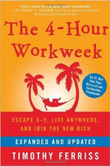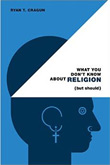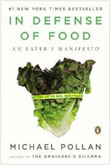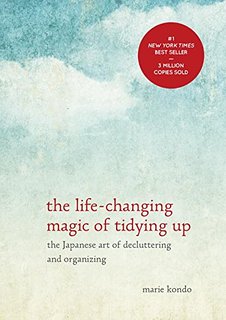Reflecting on big questions
Brandon Sun, April 6, 2020 - David McConkey
Living during a global
pandemic raises big questions. Here are six that I am paying
attention to right now.
GOOD CHEER
Why not start by celebrating the jokes and memes being shared among
friends, colleagues and loved ones? They remind us of the importance
of laughter, perspective and connection.
I would like to say “thanks” for the wonderful chalk writing on the
Pacific Avenue walking path. What a joy to serendipitously encounter
these pandemic-ready nuggets: “Spread kindness” and “Smile, it's
contagious.” And this timely gem: “And the world came together as
the people stayed apart.”
EXISTENTIAL CHALLENGES
We are in an existential crisis. In retrospect, humanity should have
been better prepared. I have previously quoted the three existential
challenges identified by historian Yuval Harari: climate change,
nuclear war and technological disruption – especially artificial
intelligence and biotechnology. Revisiting his list now, it might
have included a global pandemic.
But we have to keep looking ahead. And that means keeping in mind
existential challenges. What we learn about our response to the
current crisis will be valuable in preparing to deal with future
ones: whether pandemic, climate change or something else; whether in
six months, six years or sixty years.
DISRUPTION
The world is changing right in front of us; things will never be the
same again. Some trends already underway seem sure to accelerate,
like doing more online and at home. Sadly, everywhere, some local
institutions – from restaurants and stores to book clubs and coffee
klatches – that are closed “temporarily” will never re-open.
Harder to foresee are other changes, which will include dimensions
that are economic, technological and cultural. Disruptions spur
innovation, often in unexpected ways. We can also anticipate a new
sense of citizenship, both in our local community and in our global
community.
MINDFULNESS
We are asked during the pandemic to be more aware and considerate:
to wash our hands for 20 seconds, to refrain from touching our
faces, to cough into our arms, to maintain physical distancing.
Everyday mindfulness has never played such a big role!
We can deepen our mindfulness through practices like meditation. I
see meditation becoming more popular; it can be done easily at home,
physical distancing is built right in.
Meditation can be useful in anxious times. A meditation practice
offers the possibility of helping us to embrace our anxiety,
incorporate a needed sense of urgency, and then let go of the
negative emotion and carry on with more equanimity.
THE MEANING OF LIFE?
The pandemic puts our existence – our life and death – at the centre
of our attention. We are related to all life on Earth, probably
evolving from just one common ancestor. As American author Robert
Wright expresses it, our creator is natural selection.
“From so simple a beginning,” Charles Darwin wrote, “endless forms most
beautiful and most wonderful have been, and are being, evolved.”
Darwin described the engine of evolution: natural selection by
random mutation and the “universal struggle for life.” We now find
ourselves locked in this struggle with another evolving life form,
which we have named the COVID-19 virus.
What is the meaning of life? Instead of trying to answer that
question, I like to consider this: we are here now, in an immense
universe, the result of billions of years of evolution. We
contemplate our world with its life “most beautiful and most
wonderful” – all caught up in the “universal struggle.” And right
here, right now? Well, we have the present moment that we can choose
to live – consciously, ethically, fully.
LIFE GOES ON
Fortunately, the coronavirus seems not to affect children as much,
but youngsters can be carriers of the disease. This has led to
changes in family contact. For many grandmas and grandpas, their
grandkids won’t be visiting, out of fear of putting older folks in
danger. Everyone over 60 is now seen as vulnerable.
I am in that over-60 group; for us, our world has shifted. Our
children are now – if they weren’t already – the “sandwich”
generation: watching out both for their kids and for us – their
parents. We oldsters are not only suddenly feeling a lot more frail,
but also worried that we might not see our grandchildren again. Amid
a wave of sadness, many of us are comforted as we observe our
children – the next generation – calmly, resolutely take charge in
these difficult times.
See also:
Ordinary Lives, Extraordinary Stories
Science, Experts and Flu Shots
Why Such Slow Action on Climate Change?
Book
Explores Gratitude for the World in a Cup of Coffee
Effective Altruism Poised to Make Major Impact
Popular Right Now:
- 15 Tips for Healthy Eating
- Quality of Life, Well-Being Research Something We Can Feel Good About
- Diets Don't Work, So What Does?
- Political Contributions: Top Ten Canadian Tax Tips
- Nestle Fitness 14 Day Weight Loss Program; What is Wrong Here?
- Charitable Donations: Top Ten Canadian Tax Tips
Must Read Books:
The 4-Hour Workweek:
Escape 9-5, Live Anywhere, and Join the New Rich

What You Don't Know About Religion (But Should)

In Defense of Food:
An Eater's Manifesto

The Life-Changing Magic of Tidying Up:
The Japanese Art of Decluttering and Organizing

Don't
Even Think About It:
Why Our Brains are Wired to Ignore Climate Change

Like This? Share It!
Press Ctrl + D to Bookmark!
